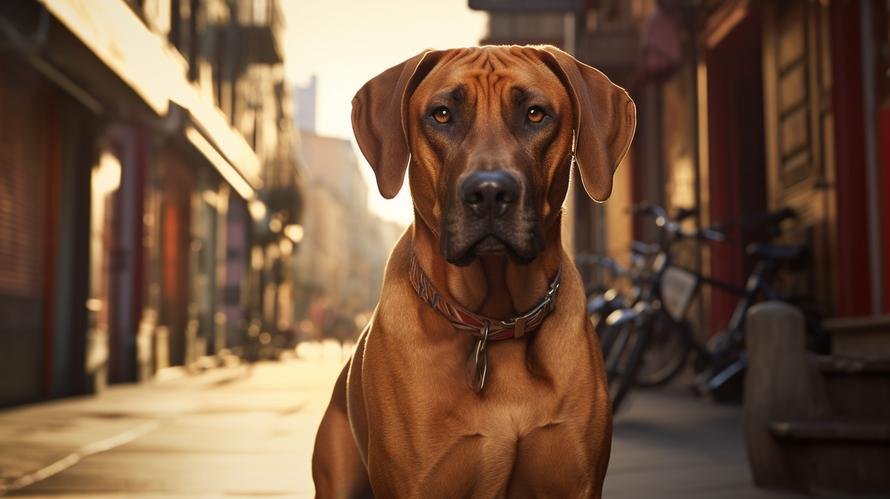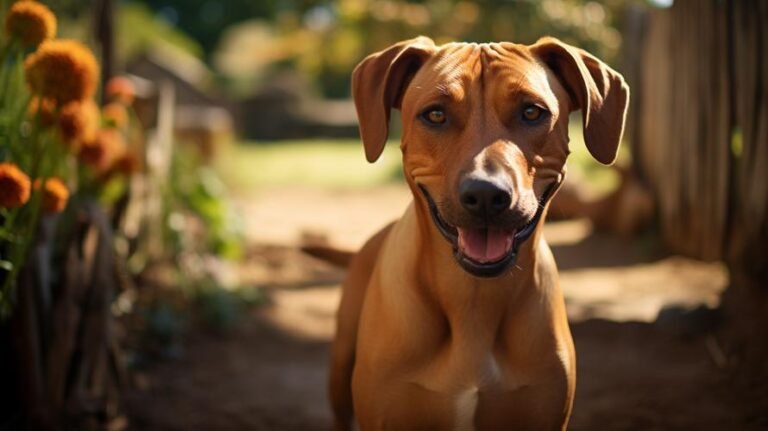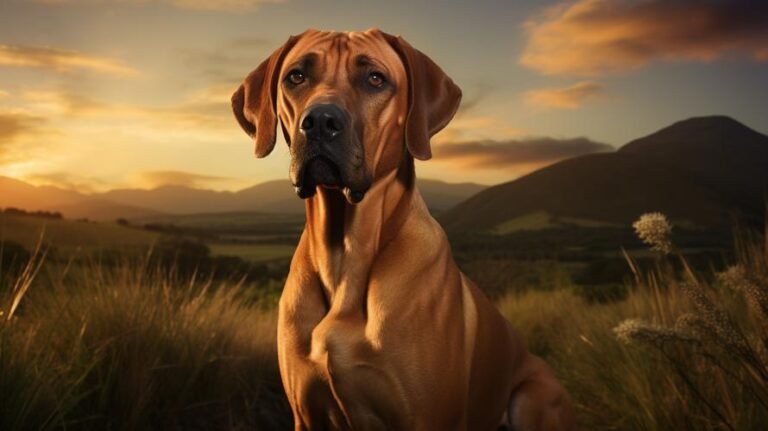You might have heard somewhere that “a dog’s breakfast” is something that’s totally messed up. Ironically, putting together your dog’s breakfast (or dinner for that matter) can sometimes seem equally chaotic. Especially when you’re trying to figure out what’s best for your beloved Rhodesian Ridgeback. Isn’t it?
In your quest for the perfect nutrition plan, you’ve likely heard the buzz about “grain-free” diets for dogs. It’s gained traction in the last decade, largely driven by the endorsement of celebrity pet trainers and high-profile vets. But is it worth hopping on the bandwagon? Should a Ridgeback be on a grain-free diet too? Interestingly, the answer might not be as straightforward as it first appears.
A little refresher course. Rhodesian Ridgebacks, affectionately known as ‘Ridgeys,’ were bred in southern Africa for hunting lions (yes, brave indeed). They are large, loving, and agile dogs. Their distinct characteristic being the ridge of hair, that runs opposite to the rest of their coat, along their spine. They have a life expectancy of about 10-12 years, and to live a healthy life, their nutrition needs to be top-notch.
Traditionally, the canine diet included significant amounts of grains or cereals. However, in recent years, the idea of grain-free diets is emerging as a new concept, with some claiming that traditional grain-filled diets can lead to allergies and various health problems in dogs. The hypothesis being that dogs, like their wolf ancestors, are primarily carnivores and not designed to digest grains.
However, it’s important to understand that dogs have evolved dramatically from their wild counterparts over the approximately 33,500 years of domestication. According to a study published in the journal “Nature”, dogs have developed specific genes for the digestion of starch, which wolves do not have. This allows them to digest grains more easily.
Besides, not all grains are created equal. Many grains such as quinoa, potatoes, peanuts and others contain beneficial nutrients like fibre, fatty acids, and other vital minerals that dogs need for a healthy life.
Coming back to our star breed, the Rhodesian Ridgeback. Ridgebacks are prone to hip dysplasia, dermoid sinus, hypothyroidism, and bloat. While many of these conditions are genetic, proper nutrition can reduce risk factors and manage symptoms. But does a grain-free diet really help?
The jury is divided. Some believe an ancestral, largely meat-based diet might suit better. However, others maintain that dogs have evolved to digest grains and can benefit from the nutrients they offer. And then, there is a group taking a balanced view, advocating a diet with a modest amount of high-quality grains, plenty of proteins, fruits, and vegetables.
In 2018, an unexpected twist arrived. The U.S. Food and Drug Administration (FDA) flagged a potential link between grain-free diets and dilated cardiomyopathy (DCM), a serious heart condition particularly affecting breeds like the Ridgeback. The concern was mainly for diets that relied heavily on peas, lentils, and other legume seeds, or potatoes as main ingredients. While the investigation is ongoing, and the correlation is not fully understood, it served as a reminder that grain-free isn’t necessarily the elixir everyone perceived it to be.
So, what’s the best course of action for your Rhodesian Ridgeback? The short answer is, it’s individual. Some Ridgebacks could do fine on grain-free while others might benefit from a diet containing high-quality grains. Key is to feed them a well-balanced, complete diet that covers all essential nutrients, suitable for their age, health condition, and lifestyle.
That said, changes in diet should always be done thoughtfully. If you’re considering shifting to grain-free, it’s advisable to consult your vet or an animal nutritionist before making changes. Look at your dog’s health holistically. Pay attention to signs such as weight changes, allergies, skin conditions, energy levels, stool consistency, and general demeanor.
In the end, whether it’s grain or no grain, what your Rhodesian Ridgeback eats must meet its unique nutritional needs─because, after all, when it comes to ensuring a healthy, happy life for your loyal companion, every morsel matters.



